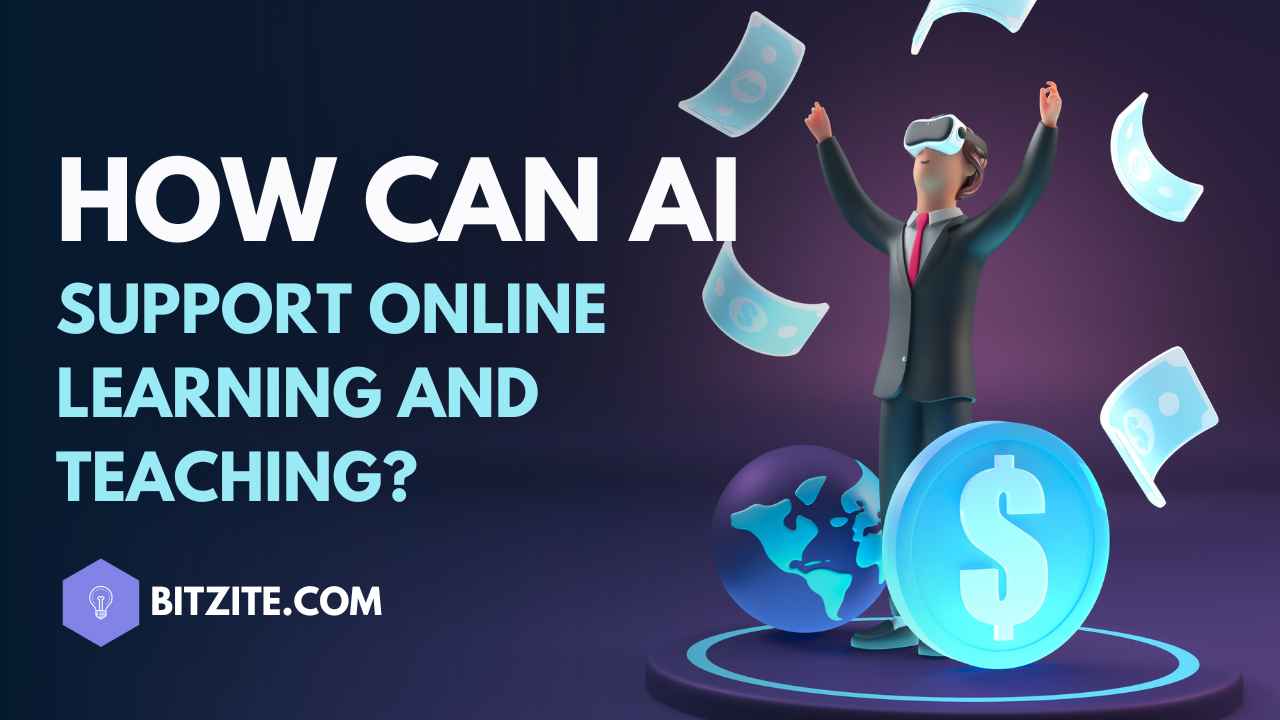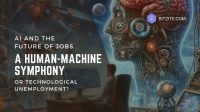With the ongoing global adoption of digital transformation, the domain of education has undergone a substantial transformation, witnessing the growing prevalence of online learning. In an effort to optimize educational outcomes and enrich the learning process, artificial intelligence (AI) has surfaced as a potent instrument. This article will examine how artificial intelligence can facilitate online instruction and learning, thereby transforming education in the digital age.
Individualized Educational Experience
An important benefit of AI in online education is its capacity to provide students with individualized learning experiences that are tailored to their specific requirements. AI is capable of analyzing vast quantities of data and modifying coursework, content, and assessments in accordance with a student’s learning style, weaknesses, and areas of strength through the use of sophisticated algorithms. By adopting a personalized approach, educational institutions guarantee that students are provided with tailored guidance, enable them to advance at their individual rates, and gain access to suitable resources, which ultimately enhances student engagement and retention of knowledge.
Systems for Intelligent Tutoring
Intelligent tutoring systems powered by AI have the capacity to fundamentally transform the landscape of online education. By employing natural language processing and machine learning algorithms, these systems engage in real-time interactions with students, delivering prompt responses to inquiries, extending guidance, and delivering feedback. Intelligent tutoring systems have the capability to replicate conversations that resemble those of humans, adjust to the unique learning curves of each individual, and provide tailored suggestions to fill in areas where knowledge is lacking. The provision of individualized support improves the student’s comprehension of intricate ideas, cultivates self-directed learning, and serves as a connecting element between conventional in-person lectures and remote education.
Augmented Curation of Content
Students can be efficiently curated and recommended pertinent educational content by AI algorithms. Through the examination of student interactions, performance data, learning preferences, and supplementary materials, articles, videos, or interactive resources, AI-driven systems have the capability to recommend additional content to augment the core curriculum. By curating this content, students are able to investigate a variety of viewpoints, interact with multimedia resources, and gain a more profound comprehension of the subject. AI is also capable of evaluating the quality and credibility of online resources, thereby guaranteeing that pupils have access to information that is both dependable and precise.
Intelligent Evaluations and Recommendations
AI technologies provide the capacity for intelligent and automated evaluation. AI can provide detailed feedback and grading on student responses to quizzes, assignments, and essays by utilizing machine learning and natural language processing. In addition to saving instructors’ time, automated assessments provide students with immediate feedback, enabling them to promptly identify areas that require improvement. In addition to identifying patterns in student performance, AI-powered assessments can assist instructors in recognizing prevalent misunderstandings or difficulties in the classroom, allowing them to develop focused interventions.
Analytics of Data to Gain Insights
Utilizing the power of data analytics, AI is capable of providing educators with invaluable insights. AI algorithms have the capability to discern patterns, trends, and correlations pertaining to learning outcomes, engagement levels, and performance through the analysis of student data. These insights can be utilized by educators to enhance instructional strategies, adapt curriculum materials, and develop individualized interventions. Data analytics powered by artificial intelligence facilitate evidence-based decision-making, empowering educators to offer focused assistance to students who are having difficulty, track their progress in learning, and enhance the overall quality of education.
Translation and Language Study
Language learning platforms powered by artificial intelligence have fundamentally transformed the process by which students gain proficiency in foreign languages. Artificial intelligence has the capability to offer interactive language lessons, pronunciation correction, and real-time translation assistance by utilizing natural language processing and speech recognition algorithms. AI-powered language learning tools adjust to the proficiency level of the user, present interactive exercises that test their knowledge, and provide individualized suggestions for enhancing vocabulary and grammar. These tools enhance the pace of language acquisition for the learner, thereby increasing the accessibility and engagement of language education.
Conclusion
Online education and instruction are undergoing a paradigm shift due to the impact of artificial intelligence, which provides instructors with potent instruments for customizing lessons, delivering pertinent feedback, and optimizing the learning experience. Education can be made more accessible, engaging, and efficacious through the utilization of AI’s capabilities; this would cultivate a cohort of lifelong learners endowed with the aptitudes necessary to flourish in the era of digitalization.
Anticipated are forthcoming developments in AI technology that will significantly influence the trajectory of education, foster equal opportunities for knowledge acquisition, and maximize the capabilities of online learning.



